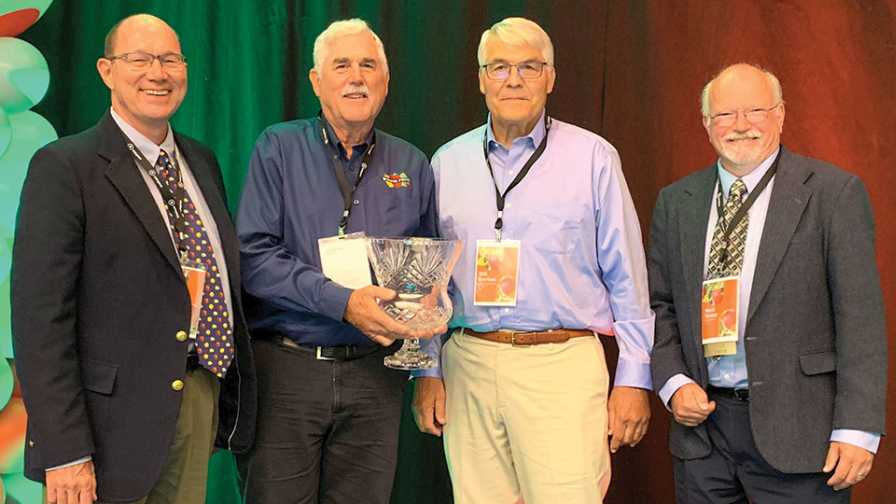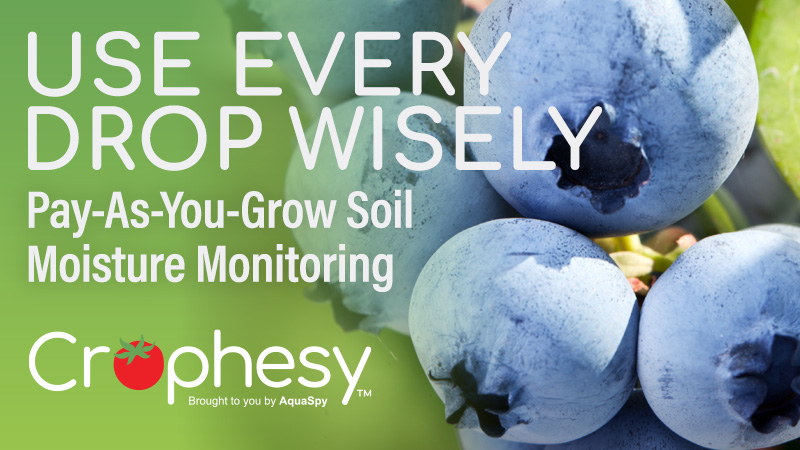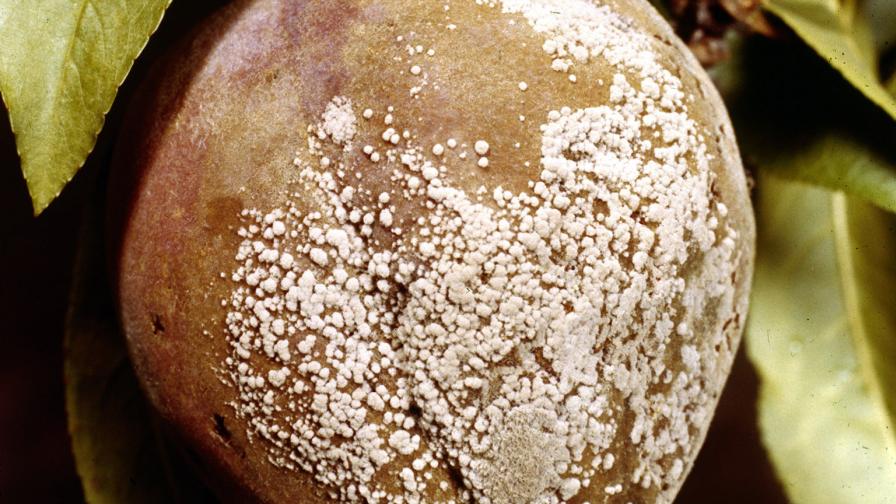Trade Instability Takes Big Bites Out of U.S. Apple Crop
Mark Seetin, U.S. Apple Association’s (USApple) Director, Regulatory and Industry Affairs, didn’t mince words when he talked about the 2018 apple crop and how trade issues have impacted the export market of American apples during USApple’s Apple Crop Outlook & Marketing Conference recently held in Chicago.
“It’s always darkest before everything goes completely black,” he said, tongue in cheek, to kick off his 2018 season recap.
Seetin’s data clearly shows apple crops are large – in fact four of the last six apple crops rank in the top 10 of historical production figures, including the record of 281.3 million bushels in 2014. The trouble though, is fresh apple sales in 2018 were down 3% per pound. Export volumes were down 27%, and farmgate value was down 16% last year.
Seetin compared the 2015 to 2018 apple crop sizes, which he said were comparable — 239,002 in 2015 and 244,241 in 2018. Seetin said comparing apples to apples – pun intended – export volume in 2018 was down 8%, export value in 2018 was down 8%, and total production value was down 10%, which amounts to a loss of $352 million.
Varieties Vying for the Top
“Marketing the 2019 crop does present some unique challenges,” he says, acknowledging the headwinds felt during the 2018 season.
Variety sales rankings are virtually unchanged from 2018 to 2019. ‘Gala’ is expected to widen its lead on ‘Red Delicious’ with 50 million bushels in 2019. About 29% to 31% of the 2018 ‘Red Delicious’ crop was still in storage around the first part of June, and the U.S. exports about half of its ‘Red Delicious’ apples.
“We’re growing about 10 million to 12 million bushels more ‘Red Delicious’ than the market is taking up,” Seetin says.
‘Honeycrisp’ barely elbows out ‘Granny Smith’ to take the fourth-place spot in 2019. Seetin says it’s a matter of time before ‘Honeycrisp’ becomes No. 3, perhaps as soon as the 2020 crop.
Seetin says ratification of the United States-Mexico-Canada Agreement (USMCA) could help alleviate some of the challenges facing the export market for the coming crop season.
2019 Predictions
Seetin proudly notes that USApple’s official crop tally has come closer than USDA to the final production total in seven of the last 10 years.
And the USDA has recently reconfigured its reporting, reducing the number of states from 20 to seven, which makes up 94% of the market. So, USApple’s production forecast follows suit.
The 42-pound unit predictions follow as such for the East: New York – 31,500; Pennsylvania – 11,500; and Virginia – 4,562. For the Midwest, Michigan expects 47,562 units. In the West, Washington expects 165,000; California – 6,500; and Oregon comes in with 3,452 units.
Seetin took great pride in recently announcing the prediction for the 2019-20 year at 247,764, 42-pound units. It’s up 1% on 2018 and down 1% on the five-year average, and it’s slightly under the USDA forecast of 253,095.

David Eddy, Editor of American Fruit Grower poses for a photo with 2019 Apple Growers of the Year Bill and John Borton and Mark Mason, Tree Fruit Crop Manager with award sponsor, Valent USA, during the U.S. Apple Association Outlook and Marketing Conference in Chicago.
Photo by Christina Herrick
Cousins Honored as Apple Growers of the Year
John and Bill Borton of Borton & Sons in Yakima, WA, were recognized during the Outlook and Marketing proceedings as the 2019 Apple Growers of the Year, presented by American Fruit Grower and Western Fruit Grower magazines and sponsored by Valent USA.
The Bortons were recognized for a lot of hard work and a little bit of luck when it comes to variety choices. Both John and Bill were quick to recognize the role their families had on their success.
“It’s been a real privilege to work with my partner, Bill Borton, for the last 50 years,” John Borton, Director of Business, says. “It’s kind of amazing to look back and realize we started 50 years ago, and how fast it’s gone when you’re doing something you love and enjoy, which is growing fruit, which is our heritage and what we grew up with.”
John also thanked his wife Barb, “for all the long hours it takes to put in to be a successful fruit grower and the many dinners I was either late to or missed over the last 50 years.”
And Bill Borton, Director of Farming, recognized that there’s more to running a good business than just he and his cousin, but a team behind a successful operation.
“Anybody that is a grower knows what happens because of your orchard managers and your crew leaders that are striving day to day to make things happen the way you want them to,” he says. “Without them nothing would come close to what we’ve done.”
Bill also recognized the role past winners – including the likes of Doyle Fleming, Fred Valentine, and Grady Auvil – have played in their family’s operation.
“We’re truly humbled to have this honor bestowed upon us. Just think about the titans in the industry that have received this and the amount that they’ve affected the industry,” he says. “A lot of those people, especially the folks from Washington, have directly affected our farming operations and changed the way we did things.”
Mark Mason, Tree Fruit Crop Manager with the award sponsor, Valent USA, hailed the Bortons’ spirit of innovation.
“The Bortons are an amazing operation, they’re a family operation that’s continued to build, grow, and innovate,” he says. “The amount of work they’ve done not only in the apple industry but the community – they’re an excellent example of what the award stands for. Not only community service, but industry service, and innovation as well.”










